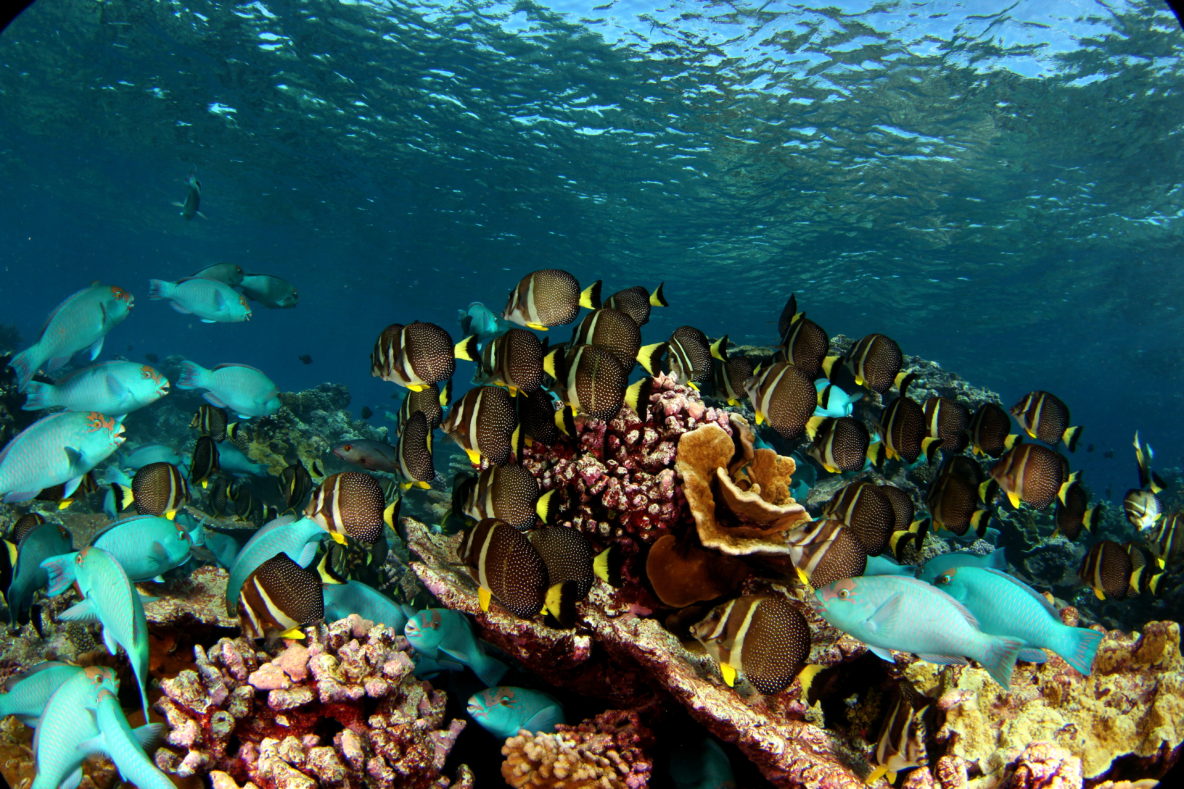Yoan Eynaud, Dylan E. McNamara and Stuart A. Sandin
Read the full article here.
ABSTRACT:
Herbivores play an important role in marine communities. On coral reefs, the diversity and unique feeding behaviours found within this functional group can have a comparably diverse set of impacts in structuring the benthic community. Here, using a spatially explicit model of herbivore foraging, we explore how the spatial pattern of grazing behaviours impacts the recovery of a reef ecosystem, considering movements at two temporal scales—short term (e.g. daily foraging patterns) and longer term (e.g. monthly movements across the landscape). Model simulations suggest that more spatially constrained herbivores are more effective at conferring recovery capability by providing a favourable environment to coral recruitment and growth. Results also show that the composition of food available to the herbivore community is linked directly to the pattern of space use by herbivores. To date, most studies of variability among the impacts of herbivore species have considered the diversity of feeding modes and mouthparts. Our work provides a complementary view of spatial patterns of foraging, revealing that variation in movement behaviours alone can affect patterns of benthic change, and thus broadens our view of realized links between herbivore diversity and reef recovery

